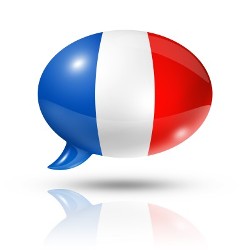French is a very practical language to learn. French is the official language of a large number of countries and is spoken by many as a second language.
Why learn French?
France is the country of love, of artists, of fashion designers, of theatres and of plays. Who would not want to learn the language connected to such a rich culture? Aside from the cultural aspects, French is a very practical language to learn. It is the official language of a large number of countries including Canada, and is spoken by many as a second language or language of business, such as in the Caribbean, Southeast Asia, Africa and Indonesia. French is the official language of the European Union and therefore learning French will be a great advantage in conducting international business.
International Business
In many Europeans countries, a second language is introduced in primary school and a third language, in middle school. International job applicants who are proficient in at least two languages will be at a distinct advantage in the global market. When you know French, you can be a part of communications and transactions occurring daily in French on every continent.
Job Opportunities
Knowledge of a second language is essential in many occupations. France is a world leader in the development of modern telecommunications, a market with explosive growth potential. The European Union, the second largest trading bloc in the world, recognises French as an official language. Think about the many opportunities with the airlines, import-export companies, and other international businesses. French is also a very useful language if you are thinking of working at the United Nations (where French is the second most widely used language). When you know French, you could become a French teacher, an interpreter or a translator.
Other Cultures
French is the first or second language in more than 40 countries and is spoken by 125 million people around the world, on every continent. Because French is a foreign language of choice for so many people in the world, knowing French will also increase your chances of communicating in a non-English-speaking country. You can use French to develop international friendships, as well as to communicate via Internet.
Sports
French is always an official language used to announce events, winners, and medals at the Olympic Games. Automobile races (Le Mans and Monte Carlo), horse racing (Longchamp), tennis tournaments (French Open), and the Tour de France (long distance bicycle race) engage fans all around the globe. When you know French, the international world of sports opens up to you.
Improve your English
From 40 to 50% of English vocabulary comes from French. The study of French will also enhance your grammar skills, and your increased proficiency in English will greatly improve your scores in English tests. As you develop greater skills in French, you also sharpen your skills in English.
Critical and Creative
It will also increase your problem-solving skills and improve your memory, self-discipline and self-esteem. Because progress is very easy to measure, you can quickly take pride in your new abilities. Knowing French can help you attain a number of important life skills.
Chances to Graduate
In many scientific fields at the graduate level, universities require a reading knowledge of French or German in order for scholars to be able to conduct research. France continues to be a leader and innovator in science and technology. Civil engineering (the tunnel between England and France and the TGV-the world’s faster train), space/aeronautics (the Concorde, a Franco-British entreprise, and the Ariane Rocket, a Franco-European initiative), medical technologies (the isolation of the HIV virus), and telecommunications (the Minitel with more than 20,000 on-line services and micro-chip telephone cards) are just a few areas in which the French are leaders. Knowing French can open the doors to international graduate school and to important research.
Travel
France is the most visited destination in the world with 76 million tourists in 2001. Paris was named by Fortune Magazine as one of the top ten “global cities”. When you speak French, you can be an educated tourist, ask for directions, get your own hotel room or tell a French friend about New Zealand.
Art, Music, Fashion, Cinema
As you quickly realize when you look at the foreign film section of your local video store, France is one of the most prolific producers of international films. The Cannes International Film Festival annually attracts the attention of the world when the best films, directors and actors are named. When you understand French, you don’t have to rely on subtitles to enjoy a French film.
Literature
People around the world are familiar with “Les Misérables”, “The Three Musketeers”, “20,000 Leagues Under the Sea”, “The Little Prince”, and “The Stranger”. In fact, France has won more Nobel Prizes for literature than any other country. The French are also admired for their great philosophers, such as Descartes and Pascal, Rousseau, Voltaire, Camus, and Sartre. When you read French, you can enjoy these works and authors in the original.
As you can see, there are a lot of great reasons for your child to learn French!
Where do you learn French?
You will find a variety of options available for your child to learn French. This may be by mixing with French-speaking friends or family, or it may involve enrolling in lessons. Some ways to do this are listed below:
- Private language schools
- Universities or polytechnics for older children
- Local Community Centres, where you and your child could choose to learn together
- Home Schooling
- Language Exchange Programmes
- e-Learning courses
What age can your child start learning French?
A child’s ability to grasp new and multiple languages at an early age is well documented. Pre-school children from ages as young as 3 or 4 can start learning French simply by by exposed to the language at home, or in structured play activities (such as those run by Fun Languages).
However, age is no barrier when it comes to learning a foreign language and it would be a great opportunity for you to learn alongside your child.
What equipment do you need to learn French?
The equipment you choose will depend on the age of your child; some suggestions include:
- French-English dictionary (electronic or hard copy)
- Reference books including grammar and vocabulary books
- Audio CDs in the car
- Video tapes or DVDs to watch
- CD-ROMs with the aid of computers
You will also need to expose you child to French speakers whenever possible.
How much time does it take to learn French?
Class times vary but generally most courses meet once or twice a week.
Classes generally run for 1 to 1.5 hours, depending on the age of the child.
Older children would be expected to spend at least another hour outside of class to revise and complete their homework. It would be ideal if a student could spend at least 5 hours per week outside of class to practice, but this is often unrealistic.
Great French Websites
Background on why your child should learn French and how French courses are delivered
A must-use resource site with loads of information relating to the French language and how to learn it
http://www.learnalanguage.com/learn-french/
A great source of information about French words, phrases and culture.







Dear Madam or Sir, I would like to introduce my website to your teachers and your students of French language. My name is Pascal d’Hervé, I teach French and manage a website to help students learn French for free: On http://www.frenchspanishonline.com you will find basic vocabulary with audio, games, a section with Video grammar always easy to understand. French expressions (video) and also Ratounet, a little pet singing in French, many activities are in HTML5 so they can be played on an iPad. Also on http://www.frenglishnews.com you will find News in French and in English with audio. I hope you… Read more »